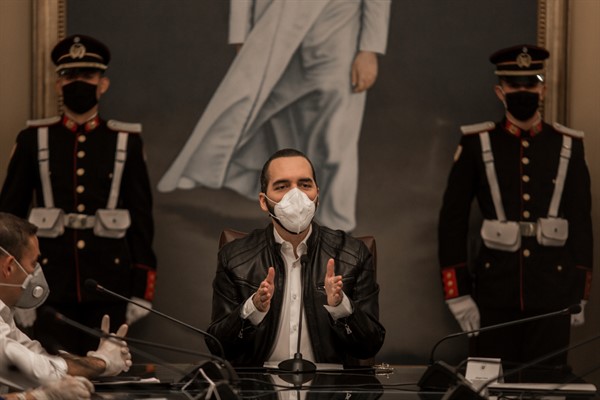As COVID-19 spread around the world last spring, El Salvador joined the dozens of countries that were appealing for urgent humanitarian assistance. Hundreds of millions of dollars rapidly flowed into El Salvador’s coffers from bilateral donors, private lenders and international financial institutions, including a $389 million loan from the International Monetary Fund that was approved in April.
Flush with borrowed money and facing an unprecedented public health and economic crisis, the Salvadoran legislature approved a $2 billion emergency fund to combat the pandemic—equivalent to nearly 8 percent of the country’s GDP. But the sudden inflow of cash has also created ample opportunities for corruption. In recent months, journalists, prosecutors and opposition lawmakers have uncovered evidence of misallocated funds, bloated procurement contracts and other financial impropriety. The scandals have even implicated senior officials in President Nayib Bukele’s government, threatening to undermine his popularity ahead of key legislative elections next month.
El Salvador is not the only country to face a spike in reports of graft during the pandemic. Health care sectors around the world are especially vulnerable, partly due to the outsized role they play in the economy. In El Salvador, annual health budgets average around 7 percent of GDP.

